George Pell’s Vatican money trail investigation hits home
Suspicions of money laundering or bribery have cast a pall over the Church amid brave reforms instigated by Cardinal Pell.
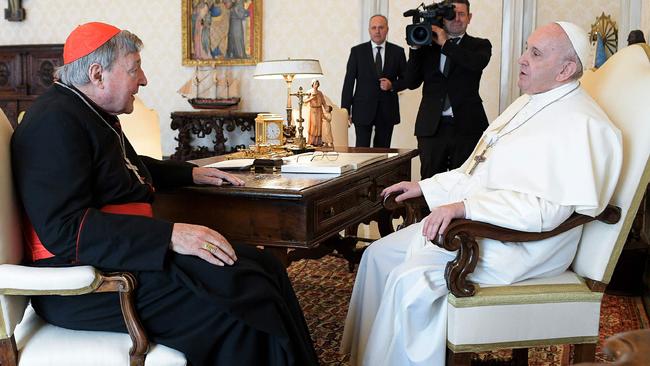
Pell, the Vatican outsider from Australia who was given the job in 2014 to clean up the Holy See’s antiquated and opaque financial system, needed more than just the formal extension beyond the birthday at which approval is required to keep working.
He was in the middle of a titanic clash of powers within the Curia, he had made many enemies, and he was facing stiff resistance to financial changes and audits.
The revelations in The Australian this week that $2.3bn was transferred from the Vatican to Australia between 2014 and 2020, without the knowledge of the Australian Catholic Bishops — and that it is being investigated by the Australian Federal Police — highlight the need for the reforms.
From his appointment in February 2014, Pell had moved quickly, brusquely and effectively. The Pope signed new financial standards laws, and by April 2015, Pell had found more than €1bn ($1.6bn) “hidden” in Vatican accounts.
The Pope confirmed Pell’s five-year appointment would continue through to 2019 but it was derailed in 2016 when Victoria Police investigated Pell for sexual abuse of minors. He was charged in 2017, faced trial in 2018 and 2019 and found guilty and sentenced to six years in jail.
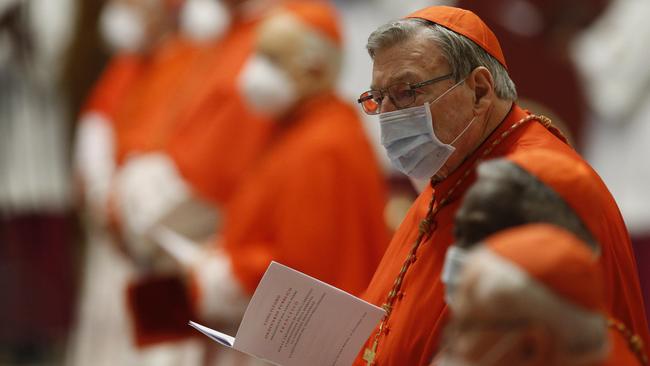
But after the High Court’s unanimous acquittal in 2020, Pell returned in October to Rome. He was given a ceremonial welcome from the Swiss Guard normally reserved for heads of state. Since then, he has watched as the financial scandal emerged from the dark corners of the Vatican.
The Archbishop of Brisbane and president of the Australian bishops’ conference, Mark Coleridge, told The Australian on Tuesday a lack of transparency and clarity in the Vatican finances and international transfers allowed for “dark speculation”.
The Australian bishops are preparing to ask Pope Francis to investigate and explain the $2.3bn in transfers, which they say was not received by any church entity.
Coleridge, who was posted to the Vatican for four years from 1997, said the deeply rooted Byzantine and antiquated culture of the Curia was one of the “big problems Cardinal Pell faced”.
The Archbishop said the timing of the revelation of the astonishing scale of the financial transfers to Australia — at time of a growing financial scandal at the Vatican — was “very unhelpful”.
In the past five months, Vatican investigators have uncovered the misuse of charitable funds, the overpayment on a $363m building in London’s Chelsea, and suspicious international transfers from the Vatican secretariat of state. They have also suspended Vatican police and heard allegations of payments to Australia to adversely affect Pell’s trial.
During the same time, the Pope has sacked high-powered Vatican insider Cardinal Angelo Becciu in connection with the London building scandal, stripped the secretariat of state of all its financial powers, and signed new financial standards laws.

Becciu, an opponent of Pell’s reforms who said the Australian cardinal was trying to enforce laws and regulations that weren’t enacted, was also the executor on two transfers in 2016 and 2018 totalling almost $2m from the Secretariat of State.
Becciu has denied any wrongdoing or anything illegal, and is suing Italian newspapers over the allegations of sending money to adversely affect Pell’s trials.
In an interview before Christmas with an Italian current affairs program, Pell said everyone who had been appointed to clean up the Vatican finances over the past decades had been resisted, attacked and undermined.
Pell referred to the history of mafia involvement in Vatican finances and said there was a tape recording of a criminal who said: “Pell is out of the game now and we’ve got a clear highway ahead now.” He also said he understood if the mafia was trying to remove him, but hoped it wasn’t anyone within the Church, although there was “a lot of smoke”.
There are two concerns for the Australian authorities: first, that the Vatican is being used as an international “washing machine” to launder money through cipher accounts which are in the control of criminals; and, second, allegations that there were attempts to adversely affect Pell’s criminal trials in 2018 and 2019.
The pattern of transfers detected by Austrac, Australia’s international financial watchdog, and being investigated by the AFP, show a sharp increase in transfers after Pell was distracted by the police investigations and later removed from his post.
Between 2017, when Pell was charged and returned to Australia, and 2020, when the High Court unanimously acquitted him, $1.8bn was transferred from the Vatican City to Australia.
Australian bishops believe the funds sent to Australia could be explained by investments in Australian bonds and equities, which has occurred in the past.

But in the audited accounts that Pell prepared in 2015, there were no “significant Australian” investments and the funds returning from Australia to the Vatican do not reflect an investment of that size.
As well, at least four of the Vatican transfers — including the two signed by Becciu, totalling almost $3m between February 2017 and December 2018 — had a Melbourne company, Neustar Australia, as the beneficiary.
The Austrac reports show transfers from the Vatican to Australia soared from $71.6m in 2014 to $137.1m in 2015 before doubling again to $295m in 2016 and peaking at $581.3m in 2017. More than $422m was transferred in 2018, $491.8m in 2019 and $294.8m in 2020 in more than 40,000 transactions over the six years.
The Vatican investigators have also looked at transfers of charity funds to the Chelsea building project and to Slovenia.
Coleridge told The Australian: “What is certain in the middle of great uncertainties is that the Australian bishops did not know about these transfers until the disclosure last week, and we were astonished at the scale of transfers. We are baffled.”
The Catholic bishops and the AFP are trying to find out who received the money and how it was spent, six years after Pell tried the same thing.


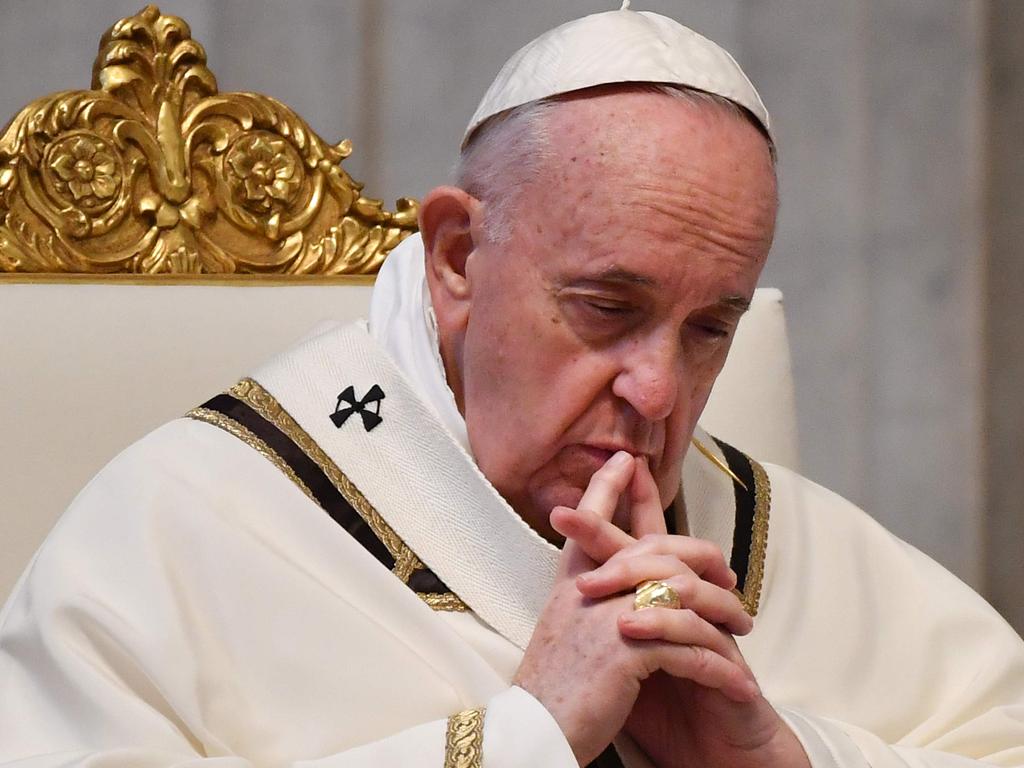
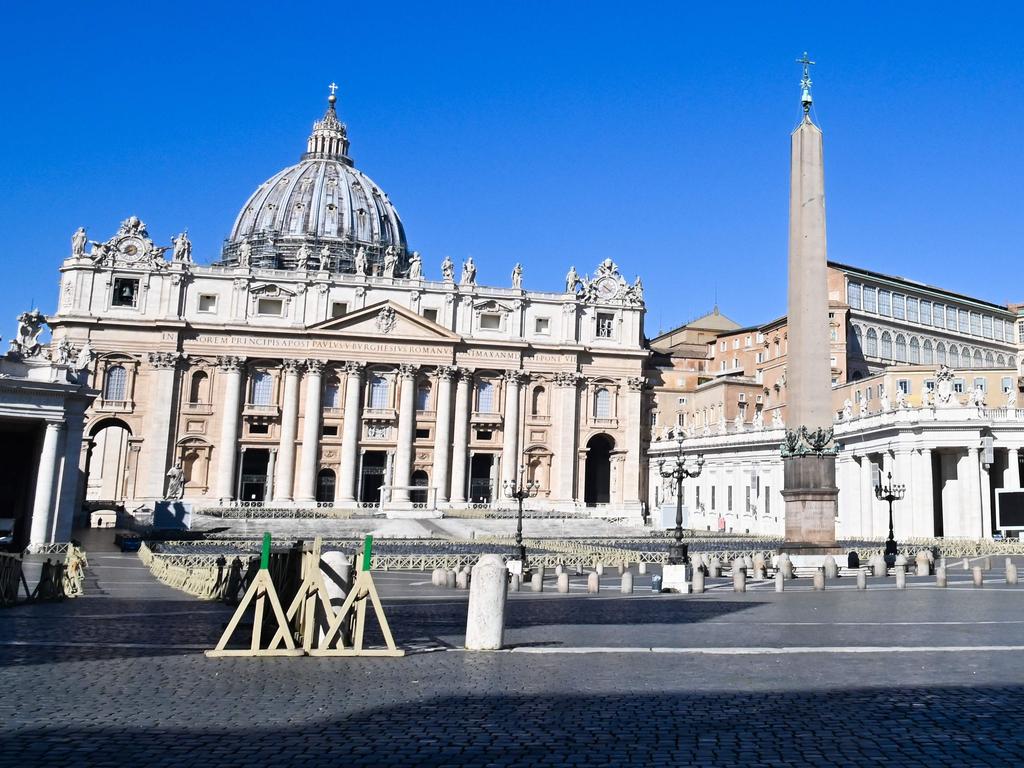
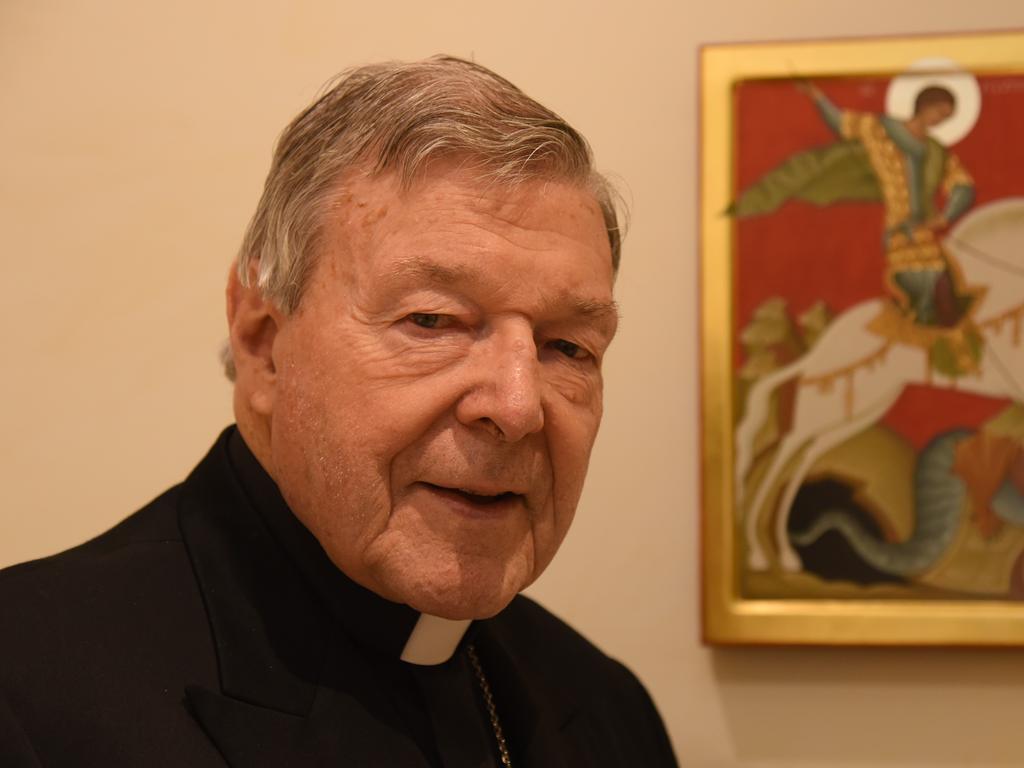
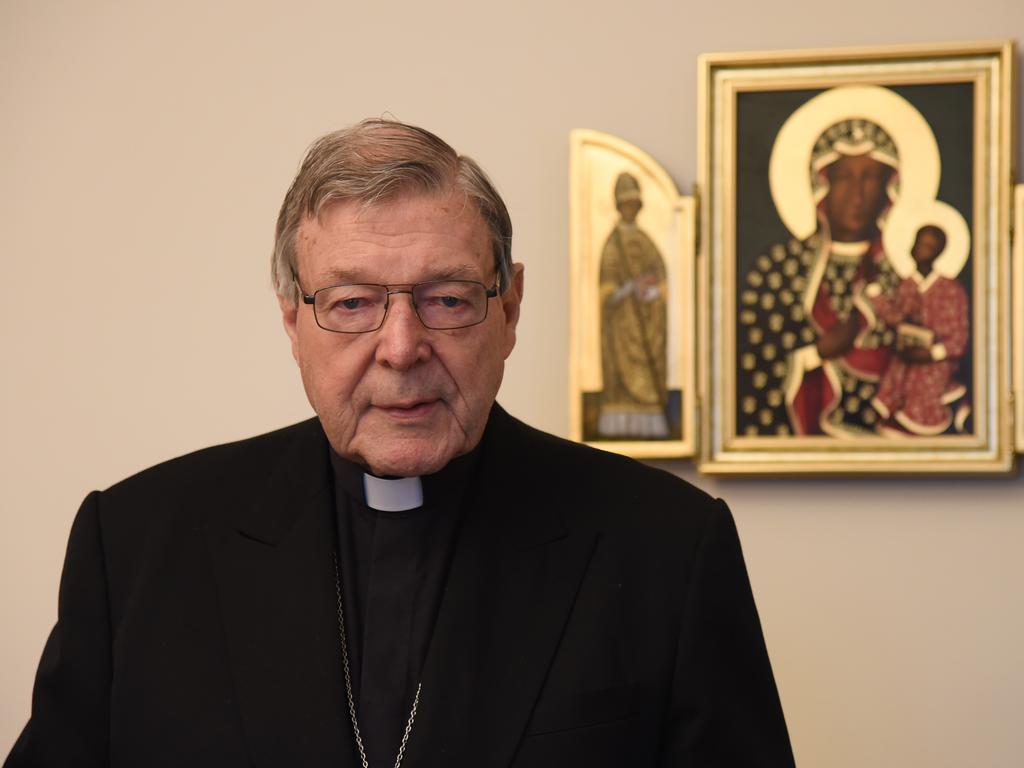
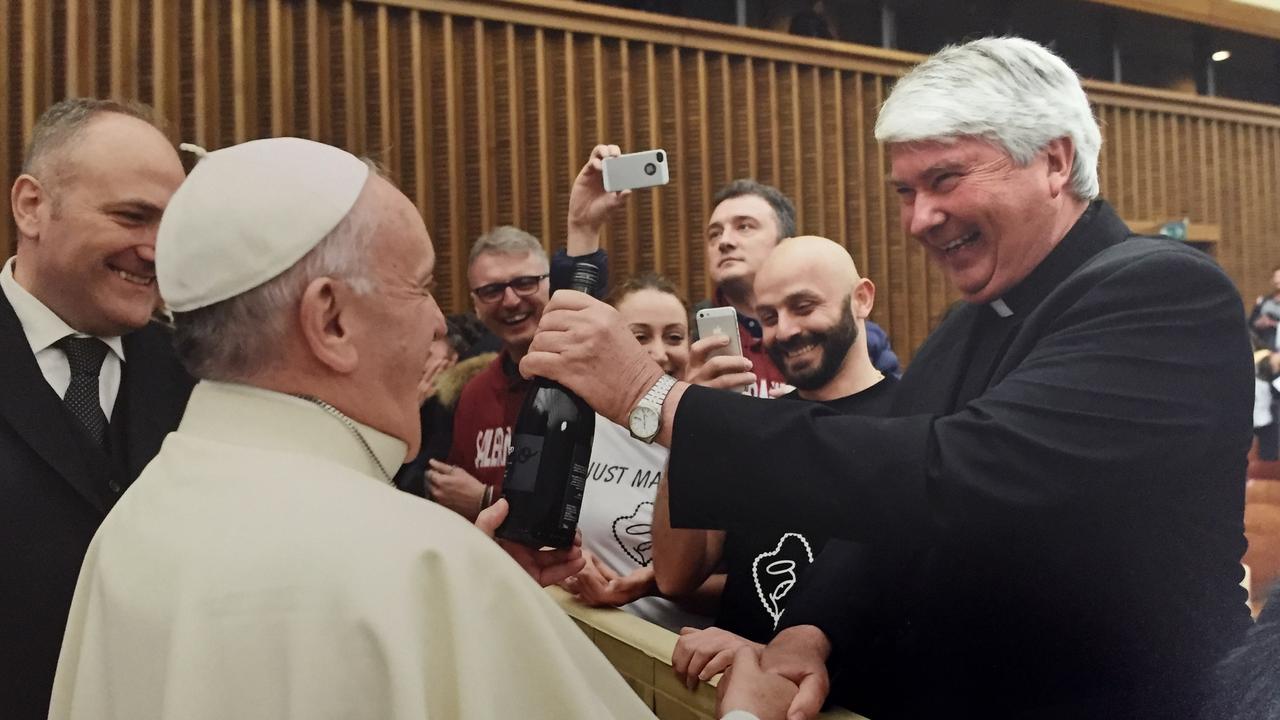

Before his 75th birthday in June 2016, Cardinal George Pell went to see Pope Francis to confirm that his appointment as the head of the new secretariat of the economy would extend beyond his birthday.